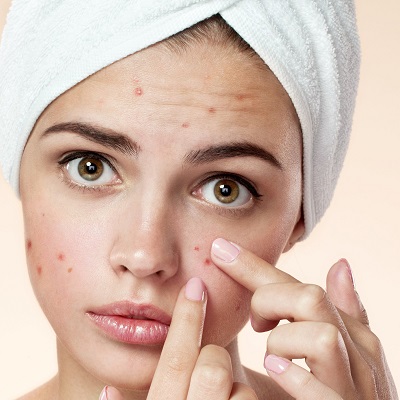
Acne, a common skin condition that affects millions worldwide, can be both frustrating and embarrassing. However, there are numerous effective treatments available to help you manage and clear your breakouts. In this comprehensive guide, we’ll explore some of the top Pimples Treatment in Dubai solutions to consider.
Understanding Acne
Before diving into treatment options, it’s essential to understand the root causes of acne. Acne occurs when hair follicles become clogged with oil and dead skin cells. Bacteria then thrive in these clogged pores, leading to inflammation and pimples.
Over-the-Counter (OTC) Treatments
Many mild cases of acne can be effectively managed with OTC products. Here are some popular options:
- Benzoyl Peroxide: This ingredient kills bacteria and reduces inflammation. It’s available in various strengths, from 2.5% to 10%.
- Salicylic Acid: Salicylic acid helps unclog pores by dissolving excess oil and dead skin cells. It’s often found in exfoliating cleansers and spot treatments.
- Adapalene: This retinoid medication helps regulate cell turnover and reduces inflammation. It’s available as a gel or cream.
- Sulfur: Sulfur is a natural ingredient that helps dry out pimples and reduce inflammation. It’s often used in combination with other ingredients, such as benzoyl peroxide or salicylic acid.
Prescription Treatments
For moderate to severe acne, prescription medications may be necessary. Here are some common options:
- Topical Retinoids: Stronger retinoids than those available OTC, such as tretinoin or adapalene, can significantly reduce acne.
- Oral Antibiotics: Antibiotics can help control the bacteria that contribute to acne. They’re often prescribed in combination with other treatments.
- Hormonal Therapy: For women with acne related to hormonal imbalances, birth control pills or other hormonal medications may be helpful.
- Isotretinoin: This powerful medication is reserved for severe, nodular acne that doesn’t respond to other treatments. It can have significant side effects, so it’s typically used under strict medical supervision.
Lifestyle Changes
In addition to medical treatments, making certain lifestyle changes can also help improve acne:
- Gentle Cleansing: Wash your face twice a day with a gentle cleanser to remove excess oil and dirt. Avoid harsh soaps or scrubbing, as this can irritate your skin.
- Avoid Touching Your Face: Touching your face can transfer bacteria and oils to your skin, leading to breakouts.
- Healthy Diet: While there’s no definitive link between diet and acne, some studies suggest that a diet high in processed foods and sugary drinks may contribute to breakouts.
- Stress Management: Stress can exacerbate acne. Practice relaxation techniques like yoga, meditation, or deep breathing to help manage stress.
FAQS
1. What causes acne? Acne occurs when hair follicles become clogged with oil and dead skin cells. Bacteria then thrive in these clogged pores, leading to inflammation and pimples.
2. Are there any home remedies for acne? While home remedies may provide temporary relief, they are often not as effective as medical treatments. Some popular home remedies include applying tea tree oil, aloe vera, or apple cider vinegar to the affected area. However, it’s essential to consult a dermatologist before trying any home remedies, as they may not be suitable for everyone.
3. Can diet affect acne? While there’s no definitive link between diet and acne, some studies suggest that a diet high in processed foods and sugary drinks may contribute to breakouts. However, more research is needed to confirm this connection.
4. How long does it take to see results from acne treatment? The time it takes to see results from acne treatment varies depending on the severity of your acne and the treatment method you choose. Some treatments may show visible results within a few weeks, while others may take longer.
5. Can acne scars be treated? Yes, acne scars can be treated. There are various treatments available, including laser therapy, chemical peels, and dermabrasion. However, the effectiveness of these treatments may vary depending on the type and severity of the scars.
When to See a Dermatologist
If your acne is severe, persistent, or causing significant distress, it’s important to consult a dermatologist. They can provide a proper diagnosis and recommend the most effective treatment plan for your specific needs.
Remember, finding the right pimple treatment solution may take time and experimentation. Be patient and consistent with your chosen treatment, and don’t hesitate to seek professional advice if needed. With the right approach, you can effectively manage your acne and achieve clearer skin.











